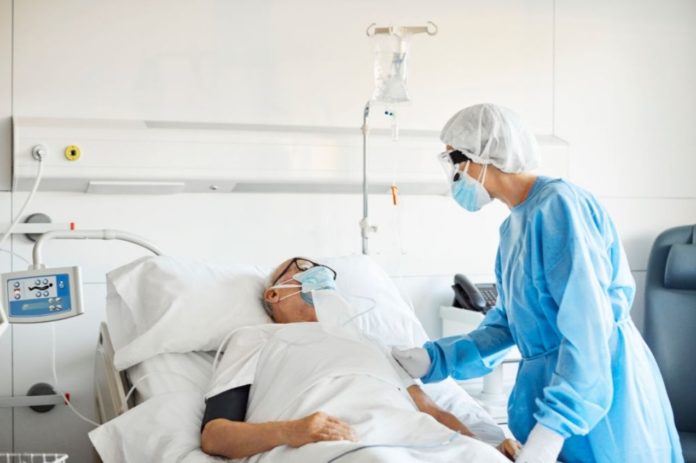The new study, published in the journal Nature Communications, provides new insights for understanding dynamic changes in immune responses to COVID-19.
With the help of bronchoalveolar lavage fluid cells, KAIST immunology researchers discovered that a specific subtype of macrophage derived from blood monocytes is involved in the hyper-inflammatory response in SARS-CoV-2 infected lungs.
- Does This Mean We Stopped Being Animal and Started Being Human Due to ‘Copy Paste’ Errors?
- The One Lifestyle Choice That Could Reduce Your Heart Disease Risk By More Than 22%
- Aging: This Is What Happens Inside Your Body Right After Exercise
- Immune-Boosting Drink that Mimics Fasting to Reduce Fat – Scientists ‘Were Surprised’ By New Findings
- Gun Violence in America: What They Don’t Talk About at the Debate
SARS-CoV-2 infected lung tissue and the immediate defence system are activated in the early stages of COVID-19. Immune cells in the lungs provide this early and rapid response, which is referred to as “innate immunity.” Macrophages are important cells in the lungs’ innate immune system, and newly differentiated macrophages from the bloodstream also play a role in early virus defenses.
Professor Su-Hyung Park and his colleagues studied the immune responses in the lungs of SARS-CoV-2 infected ferrets on a quantitative and qualitative level. The researchers used a ferret infection model to obtain SARS-CoV-2 infected lungs sequentially with a defined time interval to overcome the limitations of research using patient-derived specimens.
During the five-day course of SARS-CoV-2 infection, the researchers looked at the 10 subtypes of macrophages and discovered that infiltrating macrophages originating from activated monocytes in the blood were key players in viral clearance as well as damaged lung tissue.
Furthermore, they discovered that the immune responses in the lung tissue of severe COVID-19 patients were similar to the differentiation process of these inflammatory macrophages.
The research team is currently working on a follow-up study to determine the dynamic changes in immune responses in patients with COVID-19 who are taking immunosuppressive drugs to control a hyper-inflammatory response known as a “cytokine storm.”
Dr Jeong Seok Lee, the chief medical officer at Genome Insight Inc., explained:
“Our analysis will enhance the understanding of the early features of COVID-19 immunity and provide a scientific background for the more precise use of immunosuppressive agents targeting specific macrophage subtypes.”
- Does This Mean We Stopped Being Animal and Started Being Human Due to ‘Copy Paste’ Errors?
- The One Lifestyle Choice That Could Reduce Your Heart Disease Risk By More Than 22%
- Aging: This Is What Happens Inside Your Body Right After Exercise
- Immune-Boosting Drink that Mimics Fasting to Reduce Fat – Scientists ‘Were Surprised’ By New Findings
- Gun Violence in America: What They Don’t Talk About at the Debate
“This study is the first longitudinal study using sequentially obtained immune cells originating from SARS-CoV-2 infected lungs. The research describes the innate immune response to COVID-19 using single cell transcriptome data and enhances our understanding of the two phases of inflammatory responses,” Professor Park said.
Image Credit: Getty
